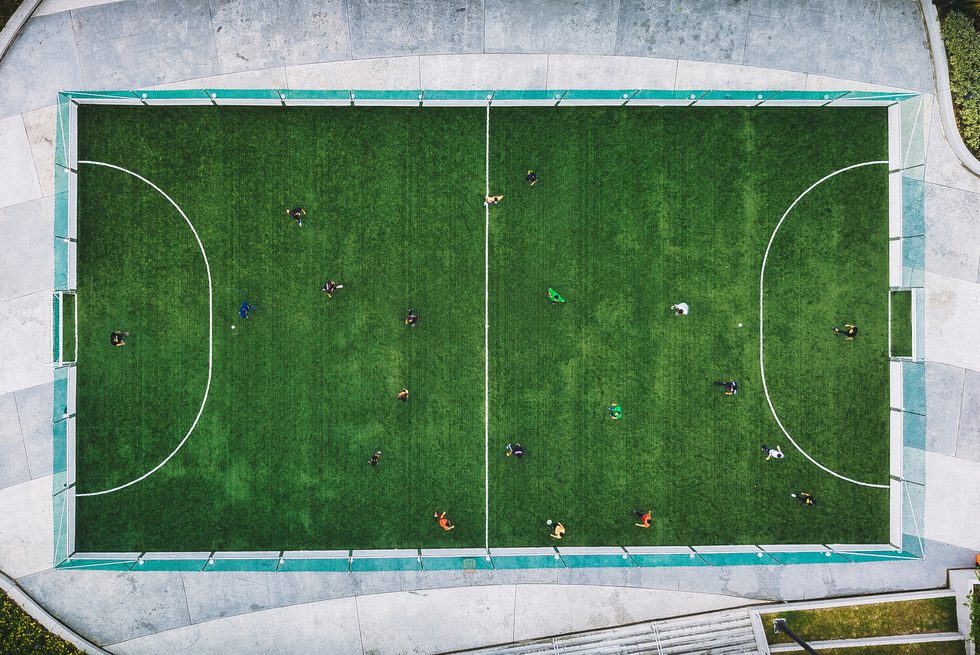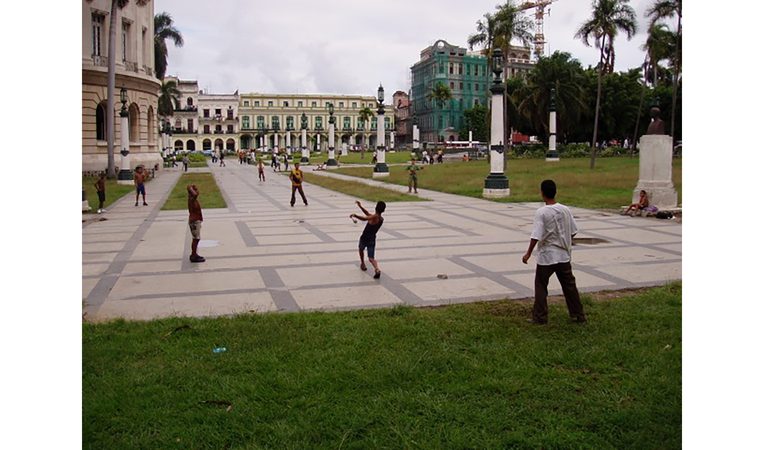Sports: Integration
From the Series: Sport
From the Series: Sport

Given my charge of “Integration,” I want to begin by thinking somewhat synthetically about my collaborators and their insights. Across Rana, Besnier, and Sehlikoglu we see shared attention to sport as an often contradictory endeavor, simultaneously embodied yet imagined, material and moral, objective as well as subjective. Inspired by Bourdieu (1977), these posts, especially Rana’s, also exceed Bourdieuian limitations by highlighting how practice does not always make perfect habiti, as sometimes sporting endeavors leave participants and observers with more questions than answers, with curious mixes of enskillment along side unanticipated forms of docility. This sense of paradox rather than doxa at the center of games is, of course, nothing new given Bateson’s (1972) observation of the inherently mixed messages of games. Games impose order in the form of equally binding rules on all participants, but they also inspire relentless improvisation and creativity. Games are instrumental as important forms of socialization, yet they are also intrinsically motivated, keyed as they are to the pursuit of pleasure for the sake of pleasure (or what Graeber (2014) reminds us is simply “fun”).

One key consequence of all of this is a deep uncertainty about games—what they mean, for what or who they are intended, and so on. Sports, and most especially the play elements of them, do not merely confront us with paradoxes but they also cultivate what following Kierkegaard (1985: 37) we might call a tolerance for paradoxes, if not a desire to “discover something that thought itself cannot think.” Sports are processes of discovery for the participants as well as the observers, as the unknown, precisely because it is unprecedented, constantly lurks around the next at-bat, the next tip-off, etc., and people do not shy away from it. Through sports, we explore, we seek out utter astonishment, and, of course we are disappointed if not devastated when the amazing is merely the scientific, to wit the fall of Lance Armstrong.
But, what if we reframe this slightly so that the paradoxes of play are not just about encounters with the unknown in an every more routinized world, but also provide important sites of experimentation, particularly when it comes to extant orders, norms, or institutions? Again, this is nothing new (see Huizinga 1950), but these posts, in particular Besnier’s and Sehilkoglu’s, and very current events in my field sites in Cuba, have me rethinking some of these older ideas. If sports do, indeed, foreground the ways in which participants must tarry simultaneously with order and improvisation, boundaries and transgression, should not we as anthropologists follow suit in the ways in which we conceptualize the linkages between, say, sports and politics? Thus, a parting deviation, away from Bourdieu and towards Wittgenstein (1958: 39) when he offers, “We can easily imagine people amusing themselves in a field by playing with a ball so as to start various existing games, but playing many without finishing them and in between throwing the ball aimlessly into the air, chasing one another with the ball and bombarding one another for a joke and so on. And now someone says: The whole time they are playing a ball-game and following definite rules at every throw. And is there not also the case where we play and make up the rules as we go along? And there is even one where we alter them—as we go along.” Rather than reinscribe an unproductive binary between order and improvisation or structure and agency, here we have a path towards thinking about real time improvisation not versus, but rather, of order.
Let me offer a glimpse of how I see some of these issues emerging in my own fieldwork in post-Soviet Cuba. In the context of monumental market-oriented reforms in the Cuban economy ushered in by Raúl Castro since 2008 and really picking up steam since 2011, sports might seem an afterthought especially given how much symbolic weight has been historically placed on athletes and baseball players, especially, as “faces of the revolution” in ways very similar to the dynamics of ludic nationalism discussed by Sehlikoglu here. Yet, sports are at the heart of these reforms in a multitude of ways, not the least of which are laws enacted in October 2013 allowing Cuban baseball players to pursue professional careers in some foreign leagues for the first time since 1961. And, in terms of Cuban reactions to these changes, a resonant theme emerges, here in the words of my informant Ernesto, a retired baseball coach from Havana: “Look, this is an invention, pure and simple—they [the Cuban sports administration] are making this up as they go just like in baseball. Sometimes you don’t have your best stuff or you just have bad luck. You don’t stop playing; you don’t just start playing chess instead. No, you find new ways to keep playing the same old game. Over time, who knows, maybe the game changes as a result.”
Following Besnier and Brownell (2012), a key question is no longer what anthropology can bring to sport, but what sport can bring to anthropology. After reading these posts and reflecting briefly on contemporary Cuba, my sense is that sports may bring a freshly dynamic sense of the political dimensions of social life. While Besnier’s post in this series reaffirms the notion that we are long past the “bread and circuses” approach to sports, there is still a tendency to see sports as politicized but not necessarily politicizing in the active sense of producing the very terms by and through which people think about and engage others. In some ways I see it as no accident that in his later lectures Foucault (1984) increasingly invokes notions of games and play to discuss “relations of power” precisely because of some of the issues evoked in these posts. Perhaps with a renewed and, crucially, ethnographic appreciation for the constitutive paradoxes of the actual games people play, anthropologists of sport may yet have something more to say about how the politics of play shape rather than merely reflect the play of politics.
Bateson, Gregory. 1972. Steps Toward an Ecology of Mind. Chicago: The University of Chicago Press.
Besnier, Niko and Susan Brownell. 2012. “Sport, Modernity, and the Body.” Annual Reviews in Anthropology 41: 443-59.
Bourdieu, Pierre. 1977. Outline of a Theory of Practice. Cambridge: Cambridge University Press.
Foucault, Michel. 2003 [1984]. “The Ethics of the Concerns of the Self as a Practice of Freedom.” In The Essential Foucault: Selections from the Essential Works of Foucault 1954-1984, edited by Paul Rabinow and Nikolas Rose, 25-42. New York: The New Press.
Graeber, David. 2014. “What’s the Point If We Can’t Have Fun?” The Baffler, no. 24, online edition, accessed February 11, 2014. http://thebaffler.com/past/whats_the_point_if_we_cant_have_fun.
Huizinga, Johan. 1950. Homo Ludens: A Study of the Play Element in Culture. New York: Roy Publishers.
Kierkegaard, Søren. 1985. Philosophical Fragments, Volume 7, edited by Howard V. Hong and Hong, Edna H. Hong, Princeton: Princeton University Press
Wittgenstein, Ludwig. 1958. Philosophical Investigations. Upper Saddle River, N.J.: Prentice Hall.